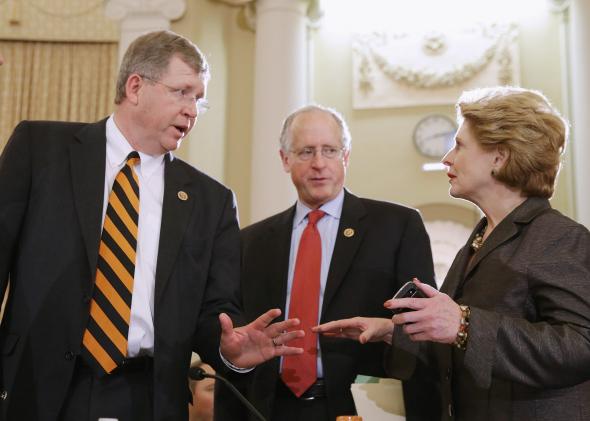What a Failed Ethics Coup in the House Tells Us About Gerrymandering

Photo by Chip Somodevilla/Getty Images
This came up earlier, but the conclusion is worth repeating. On June 30, National Journal's Shane Goldmacher reported that the House Ethics Committee had ended the rule requiring disclosure of who paid for congressional junkets. As Goldmacher reported at the time, "House Ethics Committee Chairman Michael Conaway, R-Texas, did not return a call for comment; ranking member Linda Sanchez, D-Calif., referred questions to committee staff." No one on the committee, which is split equally between the parties, wanted to take ownership.
Four days later a source told Goldmacher that Conaway had reversed himself. He'd done it while on recess, while talking to a local radio show. An inspiring story on its own, but made so much better by the quotes.
Conaway said the firestorm occurred "only because one reporter who makes a living jacking people up about these trips" wrote about the issue.
"We had gotten not one complaint from the public," he added of the unannounced change. "Not one person had looked for this information except this reporter."
A little context. Conaway was elected to Congress in 2004 after a mid-decade redistricting of the state by the new Republican legislature. A conservative but Democratic seat held by Rep. Charlie Stenholm was wiped out of existence; a new, safe seat was created in northwest Texas covering Midland and Odessa. Conaway won the seat and has never sweated a re-election. In 2012 both he and Mitt Romney won 79 percent of the vote in the new 11th District.
The irony: The conservative Stenholm was one of very few Democrats open to Social Security privatization. Had he remained in Congress in 2005, he would have given George W. Bush some bipartisan cover on his reform push. But gerrymandering pushed him out of office, replacing him with a guy so confident of re-election that he'll mock a reporter for pointing out that the House just blurred its disclosure rules.
